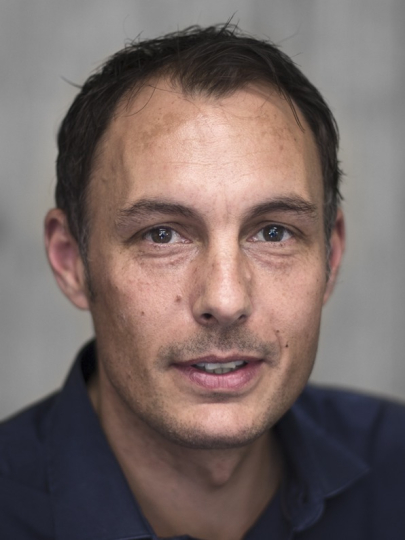Christian StockmannParis centre de recherche cardiovasculaire (PARCC), Hôpital européen Georges Pompidou - Inserm
Mes recherches
My research aims to decipher how immune cell-driven vascular remodeling affects tissue homeostasis and regeneration.
I have received my MD at the University of Duisburg-Essen, Germany, in 2006. I subsequently went as a postdoctoral fellow to the University of California, in San Diego, USA. In 2009 I returned to the University of Duisburg-Essen in Germany where I was appointed as an assistant professor for Molecular Physiology at the Institute of Physiology. In 2012 I started working as an Inserm Research Associate and in 2013 I became an ATIP-Avenir team leader at the Paris Cardiovascular Research Center at European Hospital Georges Pompidou, in Paris, France.
In September 2017, I was appointed as a professor for Molecular Medicine at the Institute of Anatomy at the University of Zurich, Switzerland.
Mon projet ATIP-Avenir
Antiangiogenic treatment revisited: Targeting Vascular Endothelial Growth Factor and the microenvironment to improve the long-term outcome of cancer therapy
In the context of chemotherapeutic treatment, it is becomingly increasingly recognized that the architecture of the tumor vasculature and its functionality, rather than blood vessel counts, determine the therapeutic outcome by controlling drug delivery as well as microenvironmental conditions like tumor oxygenation. In most tumors, blood vessels significantly differ from normal vascular networks and are characterized by inefficient blood supply despite high vasculature density. Hence, a better understanding of mechanisms involved in the regulation of drug sensitivity is indispensable for improved cancer treatments. Vascular Endothelial Growth Factor (VEGF) is a major angiogenic factor and we have shown that deletion of VEGF in tumor infiltrating myeloid cells leads to improved functionality of intratumoral blood vessels, alleviated tumor hypoxia and increased susceptibility to cytotoxic agents in mouse models of cancer. However, most of the studies focus on the initial response of tumors to therapy, and preclinical studies on avoidance of tumor relapse are lacking. Therefore, we aim to investigate the impact of targeting VEGF genetically in myeloid cells or via antibody-mediated neutralization on tumor relapse and metastasis after therapy with cytotoxic agents. Our preliminary studies indicate that loss of VEGF in myeloid cells enhances the anti-tumor immune response upon chemotherapy and delays tumor relapse. In this context we aim to characterize the effects of targeting VEGF on the vascular phenotype, tumor oxygenation, the tumor microenvironment including antitumor immune responses after chemotherapy. Altogether, our study will provide novel insights into the interplay between the vasculature, tumor cell compartment and chemotherapy elicited immune surveillance. This should have far reaching implications for the optimization of current cancer treatment regimens and provide an alternative rationale to combine vascular normalization strategies and chemotherapy.
